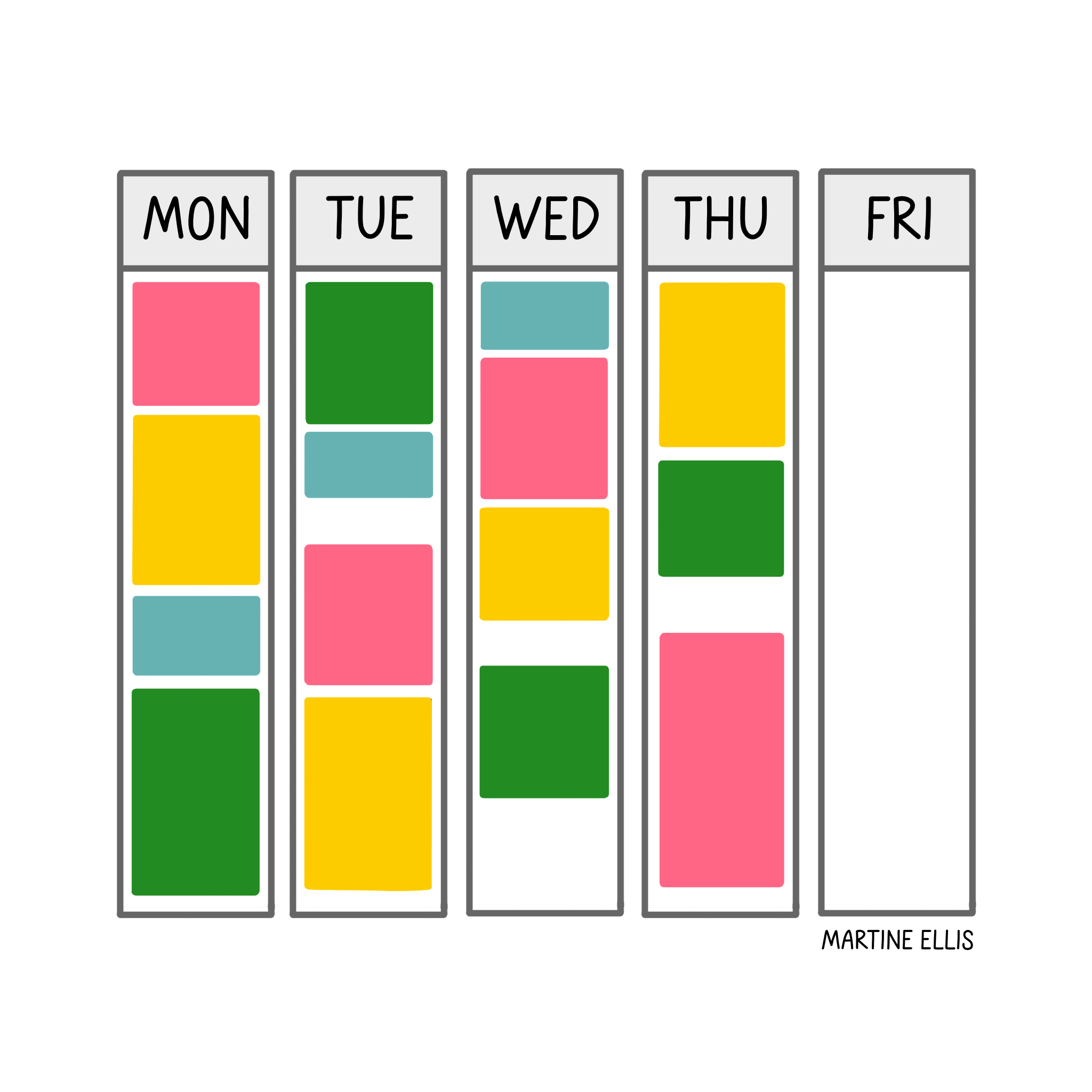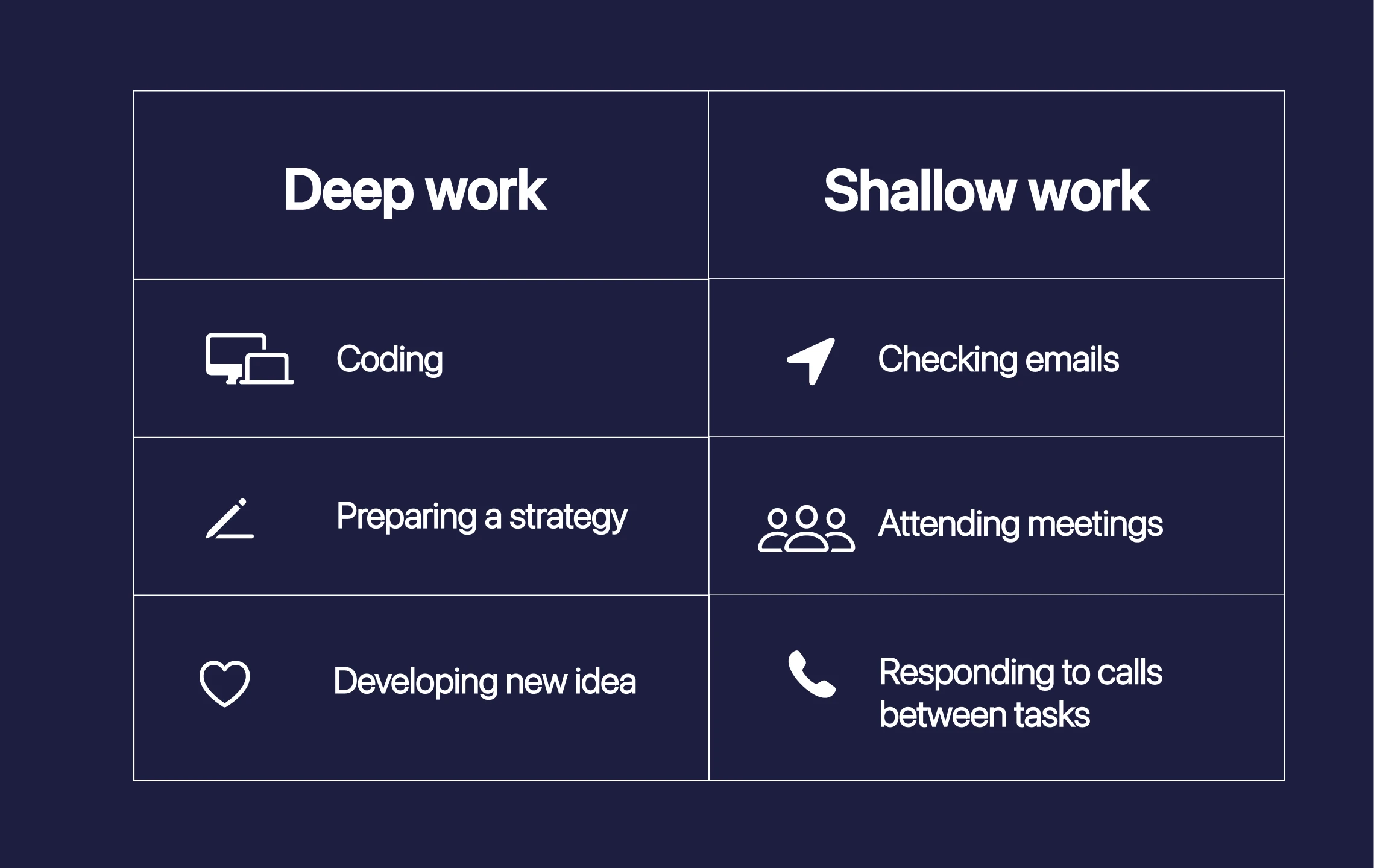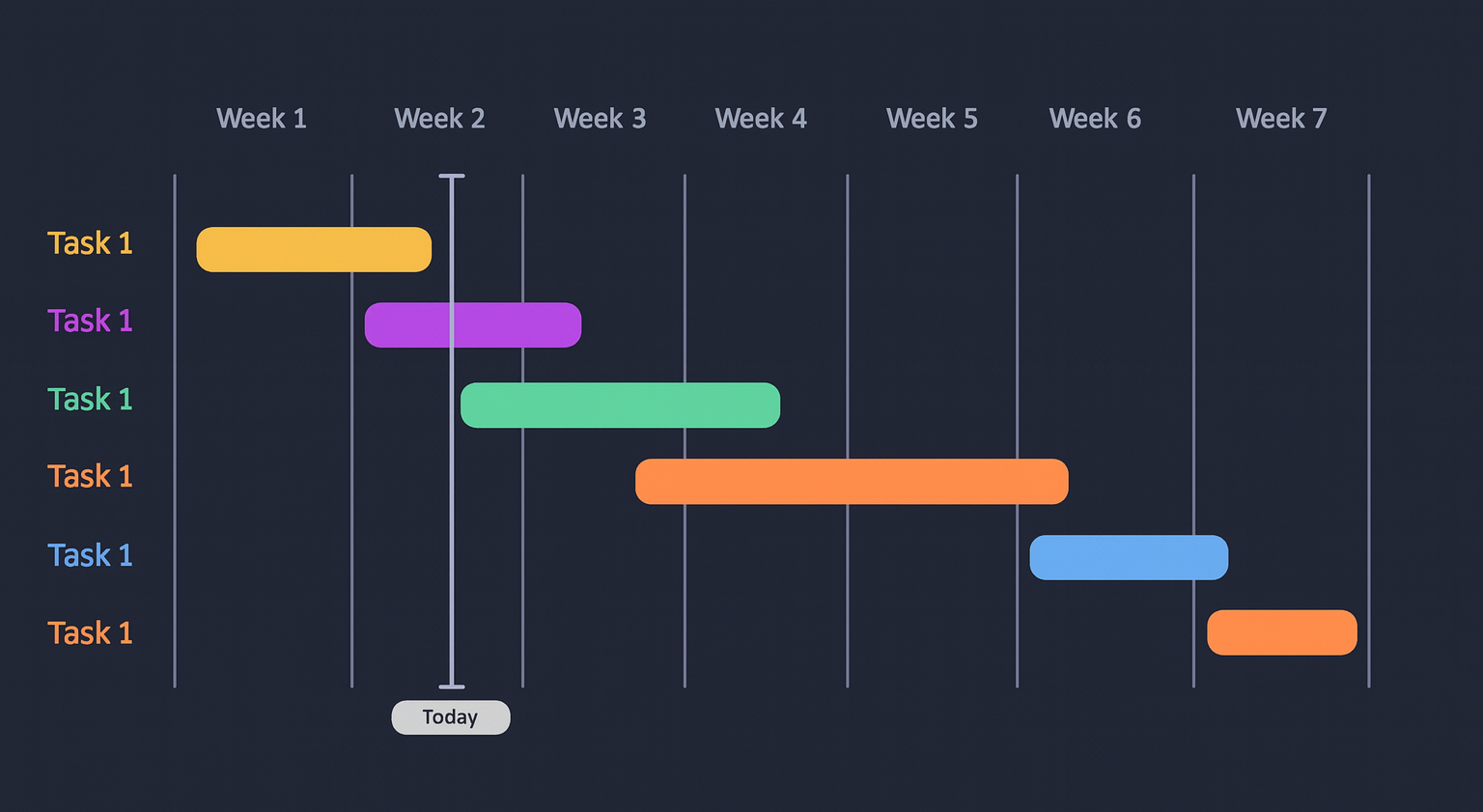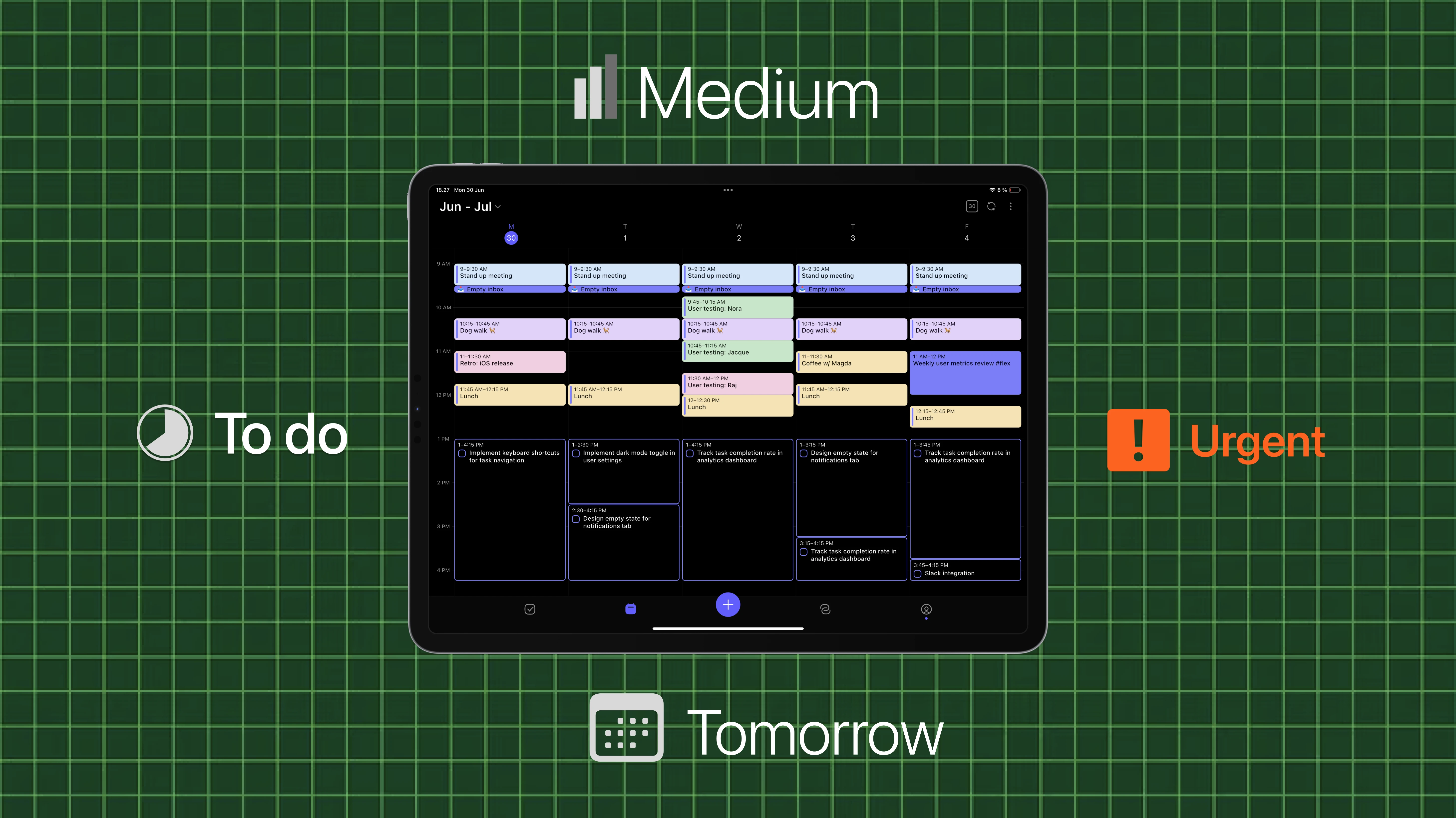Finding a Planner That Works With ADHD

Real strategies from Morgen users with ADHD
Managing time with ADHD isn't about willpower. It's about using tools that support how your brain works.
To understand what makes planning successful for ADHD brains, we spoke with three individuals who've each found their rhythm:
- Marie Poulin (founder of Notion Mastery)
- Bryan Jenks (developer and content creator)
- Martine Ellis (educator and coach)
While their approaches vary, they’ve found strategies that work with their ADHD, not against it. Certain digital tools have become essential to their routines. One of them is Morgen, a daily planner trusted by many with ADHD to bring structure and clarity to their day. We've pulled advice from our conversations with them on how they've adapted their daily planning with Morgen to work for them.
What is ADHD, and how does it affect daily planning?
ADHD (Attention Deficit Hyperactivity Disorder) is a neurodevelopmental condition that affects executive functioning, making traditional planning methods often ineffective or overwhelming.
People with ADHD commonly experience:
- Time blindness: Difficulty estimating how long tasks will take or sensing the passage of time
- Executive dysfunction: Challenges with planning, organizing, and task initiation
- Energy fluctuations: Sharp spikes and dips in focus and motivation throughout the day
- Working memory issues: Forgetting tasks, appointments, or important details
- Emotional regulation challenges: Difficulty managing frustration when plans don't work out
- Hyperfocus periods: Intense concentration that can lead to neglecting other responsibilities
- Task paralysis: Becoming overwhelmed by choices and unable to start any task
These traits can make conventional productivity systems, which assume consistent attention, reliable memory, and linear task execution, feel impossible to maintain.
What makes daily planners essential for ADHD?
Daily planners serve as external executive functioning tools. They provide the structure and memory support that many neurotypical brains handle internally.
Key benefits include:
- Reducing decision fatigue by pre-planning what to do next
- Creating visual time awareness through scheduled blocks
- Preventing task overwhelm by breaking down large projects
- Providing accountability through written commitments
- Building routine without rigid inflexibility
- Tracking patterns in energy, productivity, and mood
As developer and content creator Bryan Jenks explains:
"I don't want little tasks filling up my brain or to spend time worrying I've forgotten something. Trying to keep track of all the tasks I have to do looks like a giant executive dysfunction mountain I'll never be able to surmount."
How do people with ADHD process planning?
ADHD brains aren't broken, but they work differently. Understanding these differences helps to choose the right planning approach.
Non-linear thinking patterns mean ADHD minds often jump between ideas and tasks rather than following sequential steps. This can be a strength for creativity and problem-solving, but traditional linear planners can feel constraining.
Interest-based motivation may drive ADHD attention more than importance-based motivation. This means tasks that feel boring or routine are harder to complete, even when they're crucial.
Present-moment focus makes it difficult to consider future consequences or rewards. This is why long-term planning often fails without immediate, tangible benefits.
Emotional regulation challenges mean that when a planning system fails, it can trigger intense feelings of shame, frustration, or self-criticism that can make it harder to get back on track.
What should you look for in an ADHD-friendly daily planner?
Not all planners are created equal for ADHD brains. The right system should accommodate your unique needs rather than fight against them.
Complete life visibility
Your planner should handle all aspects of your life, not just work tasks. If you struggle with mental compartmentalization, you know how stress in one area affects everything else.
Educator and coach Martine Ellis uses Morgen to combine calendars from all her life zones:
"I need something that can handle all of me. Not just my work self or my personal self. Morgen lets me bring it all together."
She color-codes different life areas, making it easy to spot when one zone is overloaded and adjust accordingly. This gives her a strong visual queue for when she's at risk of burnout, signalling the need to reduce energy expenditures in other life zones when one is peaking.
Clear capacity visualization
Those with ADHD may struggle with estimating available time and energy, contributing to overcommitment and subsequent overwhelm.
Marie Poulin, founder of Notion Mastery, schedules maintenance tasks like meal prep and grocery shopping as recurring calendar events:
"We tend to take on more than we can handle, especially if we forget the time needed for small or routine tasks."
When you can see your actual available time, including the "invisible" tasks that keep life running, it becomes much easier to make realistic commitments and say no to requests that don't fit.
Decision-making support
The "what should I do next?" question can be paralyzing for some people with ADHD. Time blocking eliminates this decision point by pre-planning when specific tasks will happen.
Bryan relies heavily on this approach:
"If it's not in the calendar, it's not getting done."
He captures all tasks in Obsidian and Todoist, then schedules them in Morgen, removing the cognitive load of constantly trying to remember and prioritize. You can use the AI Planner and rely on Morgen’s priority factor, which takes into consideration your inputs and suggests a schedule.
Marie takes a similar but lighter approach, always scheduling her "win the day" task, the most important item that, if completed, makes the entire day successful.
Flexible rescheduling features
Plans will change, and that's normal with ADHD. Your planner should make it easy to adapt without losing track of important tasks.
When scheduled tasks remain incomplete, Morgen automatically asks whether to reschedule them, adjusting before the shame spiral that often happens when ADHD brains see "failed" plans.
Bryan has learned self-compassion around this:
"It will get done. Just not today, and that's okay."
If you're constantly rescheduling tasks, it might signal that your time estimates need adjusting. That's why Morgen makes it easy to have all task estimates rounded by 20%, making daily plans more realistic. You can also add additional buffer time rules.
Energy-based scheduling
Traditional planners focus on time management, but often those with ADHD benefit from planning based on their energy management. Your planner should accommodate natural energy fluctuations rather than fighting them.
Marie reframed her approach entirely:
"What if my inconsistency and energy is a feature, not a bug?"
Instead of pushing through fatigue, she builds recovery into her schedule and plans demanding work during peak energy periods.
Bryan schedules around his known patterns:
"I know I am less effective between 6-8pm and checked out by 8pm. I used to schedule tasks at that time, then would inevitably end up dragging them to the next day. I've stopped booking that time with tasks and instead leave it open for reading books."
Using features like Frames in Morgen, you can dedicate high-energy periods to challenging work while scheduling quick wins and breaks during natural dips.
Progress tracking and celebration
Many people with ADHD tend to focus on what didn't get done rather than celebrating accomplishments. Your planner should help you recognize and celebrate progress.
Time-blocked schedules create an automatic record of how you spent your time (and Morgen adds a dash of confetti to emphasize each win). Marie uses this for weekly reviews with her community, taking stock of achievements and course-correcting for the upcoming week.
Martine makes her weekly reviews engaging:
"Every week I summarize my week with a GIF. It's fun, it gives me a dopamine hit, and it helps me stick with a habit I know is good for me."
What are common planning mistakes?
Understanding typical pitfalls can help you choose systems that work from the start.
Over-scheduling is extremely common. Those with ADHD often underestimate how long and how much energy tasks will take. If you end most days with an incomplete plan, we recommend building in buffer time and limiting daily commitments to an achievable amount.
All-or-nothing thinking leads to abandoning systems entirely when they don't work perfectly. Adopting a new tool or system will take an adaptation period and require a learning curve. Give yourself time to experiment and adjust, rather than scrapping a system right away.
Ignoring energy patterns by planning as if you'll have consistent motivation all day. Try mapping your energy curve for a week or two. Then you can match demanding work during your natural peak periods and protect low-energy times for routine tasks or breaks.
Shame-based motivation creates unsustainable pressure that often backfires. Try to find self-compassion and celebrate progress rather than perfection.
How can you build ADHD-friendly planning habits?
Successful planning with ADHD isn't about perfect execution. It's about creating sustainable systems that support your brain's natural patterns.
Start small with just one or two planning elements rather than overhauling your entire system at once. This might mean beginning with time-blocking only your most important ("win the day") task each day.
Use visual cues like color-coding, icons, or physical placement to make important information immediately obvious. Your brain may respond well to visual organization systems.
Create accountability through body doubling, planning sessions with friends, or using apps that send gentle reminders. External accountability often works better than relying on internal motivation alone.
Build in flexibility by planning only 70-80% of your available time, leaving space for unexpected tasks, longer-than-expected projects, or simply mental breaks.
Connect to meaning by regularly reminding yourself why specific tasks or goals matter to you personally. ADHD brains work best when they can connect activities to deeper values or interests.
Embrace imperfect planning
The perfect daily planner for ADHD isn't about creating flawless schedules. It's about finding systems that work with your unique brain. Some weeks you'll follow your plan beautifully, and others you'll barely glance at it.
Both are normal parts of living with ADHD. What matters is having a system that welcomes you back without judgment, ready to support you whenever you're ready to engage with it again.
As Bryan discovered:
"I have ADHD and autism, so structure is something I need, but it can't be inflexible. Morgen gives me what I need to stay organized without making me feel boxed in."
If you're asking, "What's the best daily planner for ADHD?" there's no single answer. Managing ADHD isn't about becoming neurotypical, it's about honoring how your brain works while building supportive structures around it.
For people who want a digital planner that respects their time, their energy, and their need for flexibility, Morgen may be a good fit. It's a planner that gives structure without being rigid, helps surface priorities without taking over, and lets people adjust plans as needed.
Try Morgen free for two weeks to see if it's a good fit for you.
Read more
- Bryan Jenks (developer and content creator) interview
- From Busy to Productive: Intentional Practices for Managing Your Time With Martine Ellis
- Focus on wellbeing, productivity will follow: Reframing productivity with Martine Ellis
.png)


